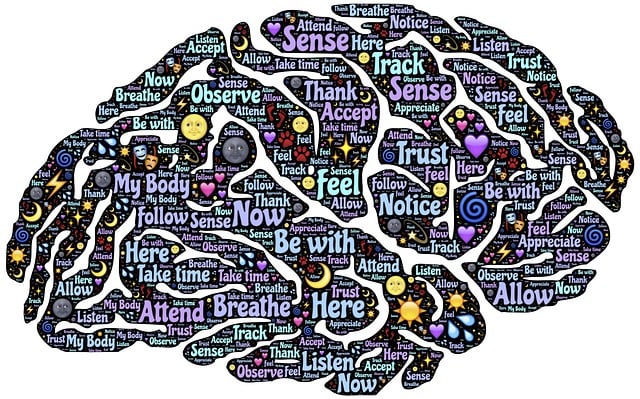Emotional intelligence (EQ) is a vital driver of personal growth and development, impacting relationships, decision-making, and stress management. Superior Russian Speaking Therapy enhances EQ awareness and regulation by leveraging language richness and cultural norms, fostering self-awareness, empathy, and resilience. This therapeutic approach creates safe spaces for exploring feelings, thoughts, and behaviors through journaling and deep conversations, ultimately improving mental wellness across diverse communities. EQ is a powerful asset in various life domains, including healthcare, where it aids decision-making under stress and promotes compassionate patient care.
Emotional intelligence (EQ) is a powerful tool for personal growth and success. This article explores the foundational concepts of EQ, delving into how language and culture shape our emotional awareness. We present techniques for enhancing EQ through innovative practices, with a specific focus on Superior Russian-Speaking Therapy. Discover practical applications that transform relationships and decision-making processes, showcasing the profound impact of higher EQ in various aspects of life.
- Understanding Emotional Intelligence: The Basis for Personal Growth
- The Role of Language and Culture in Shaping Emotional Awareness
- Techniques for Enhancing Emotional Intelligence Through Russian-Speaking Therapy
- Practical Applications: Improving Relationships and Decision-Making with Higher EQ
Understanding Emotional Intelligence: The Basis for Personal Growth

Emotional intelligence (EQ) is a powerful tool for personal growth and development. Understanding EQ involves recognizing and managing one’s own emotions, as well as empathizing with and understanding the emotions of others. This foundational aspect of emotional intelligence allows individuals to build stronger relationships, make more informed decisions, and navigate complex social situations with grace. By fostering superior Russian speaking therapy practices, we can enhance public awareness campaigns development related to burnout prevention and emotional regulation, making it a key component in personal growth journeys.
Developing EQ encourages self-awareness, which is crucial for identifying triggers and managing stress effectively. It also promotes empathy, enabling individuals to connect deeply with others, build trust, and foster meaningful relationships. In today’s fast-paced world, where burnout is a prevalent concern, emotional intelligence acts as a buffer against workplace stress. Through the cultivation of EQ, professionals can enhance their resilience, improve communication skills, and create healthier work environments, ultimately contributing to overall well-being and job satisfaction.
The Role of Language and Culture in Shaping Emotional Awareness

Language plays a pivotal role in shaping emotional awareness and intelligence. The nuances and expressions within a particular language can greatly influence an individual’s ability to recognize and understand emotions, both their own and others’. For instance, some languages have a more extensive vocabulary for describing feelings, fostering a deeper emotional understanding among speakers.
Cultural context further complicates and enriches this dynamic. Different cultures have distinct norms and expectations around emotional expression, which can impact the development of emotional intelligence. In many societies, open discussion about emotions is encouraged, leading to higher emotional literacy. Conversely, certain cultural contexts may discourage direct expression of feelings, making it crucial for mental health professionals to consider these factors when conducting risk assessments (Risk Assessment for Mental Health Professionals) and employing communication strategies (Communication Strategies). Incorporating insights from a Superior Russian Speaking Therapy can enhance the delivery of these services, particularly in diverse communities. Additionally, leveraging the Mental Wellness Podcast Series Production can offer accessible educational content on emotional intelligence, catering to a broad audience.
Techniques for Enhancing Emotional Intelligence Through Russian-Speaking Therapy

Superior Russian-speaking therapy offers powerful techniques to enhance emotional intelligence and promote overall emotional well-being. Through skilled facilitation, individuals can learn to navigate complex emotions, fostering self-awareness and understanding. This therapeutic approach encourages clients to explore their feelings, thoughts, and behaviors in a safe and supportive environment. By delving into deep conversations, clients gain insights into their emotional patterns, enabling them to develop effective coping strategies.
One such technique involves Emotional Well-being Promotion Techniques tailored for Russian speakers. These exercises may include Mental Wellness Journaling Exercise Guidance, where individuals reflect on their experiences and emotions in a structured journal. This practice helps in identifying triggers and positive thinking patterns, allowing for personal growth and improved emotional regulation. Additionally, therapists can guide clients through various mindfulness practices, ensuring they receive comprehensive support to elevate their mental wellness.
Practical Applications: Improving Relationships and Decision-Making with Higher EQ

Emotional intelligence (EQ) is a powerful tool that has practical applications in various aspects of our lives. When individuals possess a higher EQ, they are better equipped to navigate and improve their relationships with others. This heightened self-awareness enables them to understand their emotions and those of their peers, fostering deeper connections and effective communication. As a result, conflicts can be resolved more constructively, and social dynamics become more harmonious.
Moreover, a superior EQ significantly enhances decision-making processes. By recognizing and managing one’s emotions, individuals can make more rational choices, especially in stressful situations. This is particularly valuable in professional settings, such as healthcare, where practitioners often face high-pressure decisions. Incorporating emotional intelligence into medical training, through methods like the Mental Health Policy Analysis and Advocacy program, can equip healthcare providers with burnout prevention strategies. These include recognizing and managing their own mental health, which is crucial for maintaining compassion and effectiveness in patient care, ultimately preventing symptoms of depression and other mental health issues.
Emotional intelligence, a key driver of personal growth and successful relationships, is intricately linked to language and cultural context. Understanding these dynamics, as explored through the lens of Superior Russian-speaking Therapy, offers valuable insights for enhancing EQ. By mastering techniques that bridge communication gaps and foster emotional awareness, individuals can significantly improve their decision-making abilities and strengthen interpersonal connections. This journey towards higher emotional intelligence is not just a personal endeavor but a transformative process that enriches all aspects of life.














